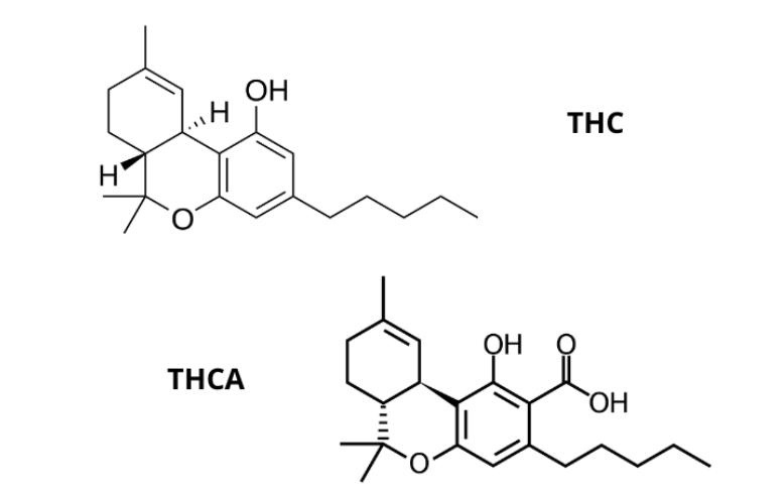Understanding THC and THCa: A Guide for Hemp Enthusiasts

As the hemp industry continues to grow, so does our understanding of the various compounds found within this remarkable plant. Two of the most talked-about cannabinoids are THC (tetrahydrocannabinol) and THCa (tetrahydrocannabinolic acid). Despite their similar names, these compounds have distinct properties and effects. In this article, we’ll explore what THC and THCa are, how they differ, and their unique benefits.
What is THCa?
THCa, or tetrahydrocannabinolic acid, is a non-psychoactive cannabinoid found in raw and live cannabis and hemp plants. It is the precursor to THC, meaning that it transforms into THC when exposed to heat through a process called decarboxylation. This process can occur during smoking, vaping, or cooking.
Key Characteristics of THCa:
- Non-Psychoactive: Unlike THC, THCa does not produce any psychoactive effects, meaning it won’t make you feel “high.”
- Potential Health Benefits: Research into THCa is still in its early stages, but it shows promise for various therapeutic benefits. Preliminary studies suggest that THCa may have anti-inflammatory, neuroprotective, and anti-emetic (anti-nausea) properties.
What is THC?
THC, or tetrahydrocannabinol, is the most well-known cannabinoid, famous for its psychoactive properties that result in the “high” associated with cannabis use. THC is created when THCa undergoes decarboxylation, a reaction that removes a carboxyl group and releases carbon dioxide.
Key Characteristics of THC:
- Psychoactive: THC is responsible for the euphoric and psychoactive effects of cannabis. It interacts with the endocannabinoid system in the brain, particularly the CB1 receptors, to produce these effects.
- Therapeutic Uses: Beyond its recreational use, THC has been studied for various medical applications. It can help alleviate pain, reduce muscle spasticity, stimulate appetite, and ease nausea, making it beneficial for conditions like chronic pain, multiple sclerosis, and chemotherapy-induced nausea.
The Relationship Between THC and THCa
The primary difference between THC and THCa lies in their chemical structure and how they interact with the body. THCa is found in the raw hemp plant and does not have psychoactive effects. It’s only when THCa is heated that it converts to THC, which then produces the psychoactive effects.
Conversion Process:
- Raw Hemp Plant: Contains high levels of THCa and minimal THC.
- Decarboxylation: Exposure to heat converts THCa into THC, activating its psychoactive properties.
Benefits and Uses
Both THC and THCa offer unique benefits and can be used in different ways depending on individual needs and preferences.
THCa Benefits and Uses:
- Juicing and Raw Consumption: Because THCa is non-psychoactive, it can be consumed in its raw form by adding raw hemp leaves to smoothies or juices. This allows users to benefit from its potential anti-inflammatory and neuroprotective properties without experiencing a high.
- Topicals and Tinctures: THCa can be infused into topicals and tinctures for localized relief and overall wellness.
THC Benefits and Uses:
- Smoking and Vaping: THC is commonly consumed through smoking or vaping, offering quick relief from symptoms such as pain and nausea.
- Edibles and Oils: THC can be infused into edibles, oils, and capsules for longer-lasting effects, making it suitable for chronic conditions.
Legal Considerations
It’s important to note that the legal status of THC and THCa varies by region. In many places, hemp products must contain less than 0.3% THC to be legally sold. THCa, being non-psychoactive, often has more lenient regulations, but it’s crucial to stay informed about local laws and regulations regarding these cannabinoids.
Conclusion
Understanding the differences between THC and THCa can help hemp enthusiasts make informed choices about the products they use. Whether you’re seeking the non-psychoactive benefits of THCa or the therapeutic effects of THC, both cannabinoids offer unique advantages that can contribute to overall wellness. Always remember to consult with a healthcare professional before starting any new supplement regimen, and enjoy exploring the diverse world of hemp!
